Looking for the Cheapest Shipping Companies from China to Spain? Navigating your shipping options is crucial to minimize costs while ensuring prompt deliveries. Whether you choose air freight, sea freight, express services, or door-to-door solutions, each method presents unique benefits and challenges. This comprehensive guide delves into essential shipping options, considerations for selecting the right provider, and strategies for securing competitive rates. With the right insights, you can optimize your logistics approach and simplify your shipping operations for maximum efficiency.
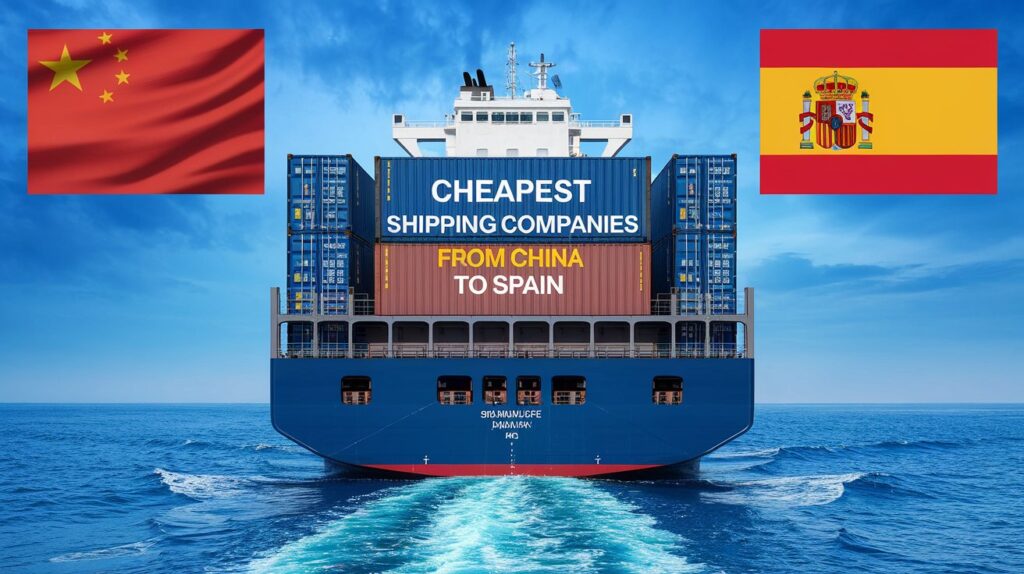
Overview of Shipping Options from China to Spain
When it comes to importing goods from China to Spain, various shipping options are available, each with its unique benefits and considerations. Understanding these options is crucial for businesses aiming to minimize costs while ensuring timely delivery.
Air Freight vs Sea Freight
Air Freight
Air freight is often preferred for high-value or time-sensitive shipments. This method allows goods to be transported quickly between China and Spain, significantly reducing transit times. Depending on the specific route and airline, air freight can deliver packages within 3 to 7 days. However, this speed comes at a higher cost compared to sea freight, making it less suitable for bulk shipments or lower-value goods.
| Advantages of Air Freight | Disadvantages of Air Freight |
|---|---|
| Fast delivery (3-7 days) | Higher costs |
| Ideal for perishable goods | Limited weight capacity |
| Less risk of damage | Limited cargo types permitted |
Sea Freight
Sea freight is the most cost-effective option for bulk shipping, making it the preferred choice for many businesses. Transit times are longer, typically ranging from 20 to 40 days, depending on the shipping route and port of origin/destination. Moreover, sea freight can accommodate larger shipments, which is beneficial for cost savings on large volumes of goods.
| Advantages of Sea Freight | Disadvantages of Sea Freight |
|---|---|
| Lower shipping costs | Longer transit times (20-40 days) |
| Capacity for large shipments | Increased risk of delays |
| Suitable for various cargo types | Weather dependency |
Express Delivery Services
Express delivery services combine the speed of air freight with additional conveniences such as tracking and door-to-door delivery. Companies like DHL, FedEx, and UPS offer these services, ensuring that packages reach their destination quickly and reliably. Express services are ideal for time-sensitive documents or smaller packages but are often more expensive than standard air freight.
| Features of Express Delivery Services |
|---|
| Quick delivery (1-3 days) |
| Extensive tracking capabilities |
| Door-to-door delivery available |
Door-to-Door Shipping
Door-to-door shipping is a comprehensive service that includes pickup from the supplier in China and direct delivery to the recipient in Spain. This service simplifies the logistics process, as it often covers all aspects, including customs clearance, documentation, and delivery. For businesses unfamiliar with international shipping regulations, this can be an invaluable option.
Read More:
- Shipping From China To Netherlands
- Shipping From China To Spain
- Shipping From China To Germany
- Shipping From China To France
- Shipping From China to Italy
- Shipping From China To Poland
- Shipping From China to United Kingdom
Factors to Consider When Choosing a Shipping Company
Selecting a shipping company involves careful consideration of several factors that impact not only the costs but also the efficiency and safety of your shipments.
Shipping Costs and Rates
Cost is often the primary concern when choosing a shipping method. Rates can vary significantly based on the shipping option selected, the weight, and dimensions of the cargo, as well as additional services required. A detailed comparison of quotes from various logistics providers can help in identifying the most cost-effective solution.
Transit Times
The urgency of the shipment is a crucial factor in determining the best shipping method. Air freight is best for urgent deliveries, while sea freight is more suited for bulk shipments where time is less of a factor. Consider the urgency of your shipment and communicate this with potential shipping companies to find options that meet your timeline requirements.
Reliability and On-time Delivery
Reliability is paramount in the shipping industry. Research the track record of potential shipping companies concerning on-time delivery rates. Customer reviews and industry ratings can provide insights into the reliability of a service provider.
Insurance and Damage Protection
Insurance is critical when shipping goods internationally. Even with the best shipping practices, unexpected incidents can occur, leading to damage or loss. Ensure the shipping company offers robust insurance services that cover the full value of your goods during transit.
Customer Service and Support
A responsive customer service team can make a significant difference in your shipping experience. Choose a shipping company that provides comprehensive support, including assistance with documentation, customs clearance, and real-time tracking updates. Having access to knowledgeable customer service representatives can help resolve issues quickly and efficiently.
By taking these factors into account, businesses can make informed decisions when selecting a shipping company, ultimately leading to more efficient and cost-effective shipping solutions. For those looking for a reliable and efficient partner for shipping from China to Spain, consider Dantful International Logistics, which offers highly professional, cost-effective, and high-quality logistics services tailored to your needs. Explore their range of services today to streamline your shipping process.
Dantful International Logistics Services:
- Dantful Ocean Freight Services
- Air Freight From China
- Amazon FBA Freight Forwarding
- WAREHOUSE Services
- One-Stop Customs Clearance Solution
- Cargo Insurance Services in China
- DDP Shipping Services By Dantful Logistics
- Out of Gauge Cargo Transportation Shipping Services
Top International Freight Forwarders for China to Spain Shipping
When importing goods from China to Spain, partnering with a reputable international freight forwarder can make a significant difference in ensuring a smooth and efficient shipping experience. Here are some of the top international freight forwarders known for their reliability and extensive service offerings.
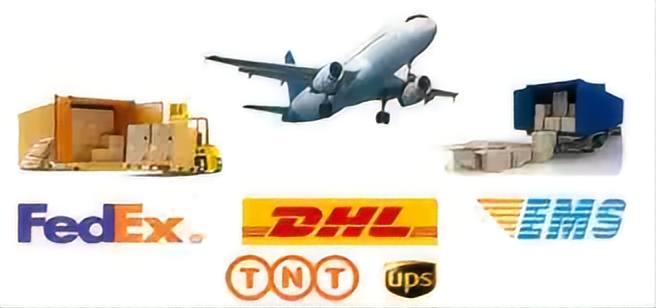
DHL
DHL is a global leader in logistics and international shipping. Known for its extensive network and fast delivery options, DHL offers a range of services that include air freight, ocean freight, and express delivery. Their ability to provide door-to-door services simplifies the shipping process for businesses. DHL also provides robust tracking tools, allowing shippers to monitor their shipments in real time.
| Key Features |
|---|
| Global reach with services to over 220 countries |
| Comprehensive tracking capabilities |
| Dedicated customer support for international shipping |
FedEx
FedEx is renowned for its reliability and speed, particularly in the express shipping sector. With a strong presence in both air and ground shipping, FedEx delivers a variety of solutions tailored to meet the needs of businesses importing goods from China to Spain. Their services include FedEx International Priority, ensuring fast delivery, and FedEx International Economy, providing more cost-effective options for less urgent shipments.
| Key Features |
|---|
| Expedited shipping options |
| Extensive global logistics network |
| Advanced tracking and customer support |
UPS
UPS is a well-established player in the logistics industry, offering comprehensive shipping solutions for businesses. With services ranging from express shipping to freight transportation, UPS provides flexibility in shipping options. They are particularly known for their reliable customs clearance processes, which can help expedite shipment timelines.
| Key Features |
|---|
| Strong focus on logistics and supply chain management |
| Customizable shipping solutions |
| Efficient customs clearance services |
Aramex
Aramex specializes in logistics and transportation solutions, with a particular emphasis on the Middle East and Asia. Their services include international freight forwarding, express delivery, and e-commerce logistics. With a commitment to excellence in customer service, Aramex provides tailored solutions for businesses looking to streamline their shipping processes.
| Key Features |
|---|
| Tailored logistics solutions for businesses |
| Strong presence in Asia and the Middle East |
| Comprehensive e-commerce logistics capabilities |
DB Schenker
DB Schenker is a prominent logistics provider known for its integrated supply chain solutions. They offer a wide range of services, including air freight, sea freight, and land transportation. DB Schenker is particularly noted for its expertise in managing complex logistics challenges and its commitment to sustainability.
| Key Features |
|---|
| Extensive global network and local expertise |
| Solutions for complex logistics needs |
| Commitment to sustainable logistics practices |
Advantages of Using an International Freight Forwarder
Engaging with an international freight forwarder provides numerous advantages that can enhance your shipping experience and mitigate the complexities of international logistics.
Expertise in International Shipping Regulations
Navigating the complexities of international shipping regulations can be daunting. Freight forwarders possess in-depth knowledge of these regulations, ensuring compliance and minimizing the risk of delays or penalties. Their expertise can help businesses avoid common pitfalls associated with documentation and regulatory requirements.
Customs Clearance Assistance
Freight forwarders streamline the customs clearance process, ensuring that all necessary paperwork is completed accurately and submitted on time. This assistance is invaluable for businesses, as delays in customs clearance can significantly impact delivery timelines. By partnering with a freight forwarder, you gain access to professionals who understand the intricacies of customs regulations in both China and Spain.
Tracking and Status Updates
One of the standout features of working with a freight forwarder is the ability to receive real-time tracking and status updates. Most reputable freight forwarders provide advanced tracking systems that allow businesses to monitor their shipments throughout the entire shipping process. This transparency helps businesses manage expectations and improves communication with stakeholders.
Single Point of Contact
A major benefit of using an international freight forwarder is the availability of a single point of contact for all shipping-related inquiries. This simplifies the communication process, as businesses only need to interact with one representative who understands their specific shipping needs. This dedicated support can help resolve issues more efficiently and keep shipments on track.
By leveraging the services of established international freight forwarders such as DHL, FedEx, UPS, Aramex, and DB Schenker, businesses can enhance their shipping processes and improve operational efficiency when importing goods from China to Spain. Additionally, partnering with Dantful International Logistics can offer a comprehensive solution tailored to your specific logistics needs, ensuring a smooth and reliable shipping experience. Explore Dantful’s offerings today to streamline your import operations.
Local Chinese Shipping Companies for Spain
When importing goods from China to Spain, collaborating with local Chinese shipping companies can provide significant advantages. These companies often offer tailored services that align well with the specific needs of businesses seeking to improve their logistics efficiency. Below are key benefits of working with local Chinese shipping providers.
Lower Costs Than International Providers
Local Chinese shipping companies typically operate with lower overhead costs compared to international logistics firms. This cost advantage enables them to offer competitive pricing for shipping services. Businesses can benefit from reduced freight charges, which can be particularly advantageous for large shipments or ongoing import needs. Utilizing local providers can contribute to overall savings, enhancing the profitability of importing goods from China.
| Cost Comparison | Local Chinese Shipping Companies | International Providers |
|---|---|---|
| Average shipping rates | Significantly lower | Higher due to overhead |
| Flexibility in pricing negotiations | More willingness to negotiate | Standard pricing models |
| Additional cost savings | Possible discounts on bulk shipments | Fewer discounts |
Chinese Language Support
Effective communication is crucial in logistics. Local Chinese shipping companies often employ staff fluent in Chinese, providing seamless communication between suppliers in China and clients in Spain. This language proficiency can help bridge any gaps that may arise due to language barriers, ensuring that instructions, documentation, and updates are understood clearly. Enhanced communication can further minimize the risk of errors and misunderstandings during the shipping process.
| Communication Benefits | Local Chinese Shipping Companies | International Providers |
|---|---|---|
| Language fluency | Mandarin and local dialects | Often English-focused |
| Clarity in documentation | Tailored translations | Standardized forms |
| Quick resolution of issues | Direct communication with suppliers | Potential delays due to translation services |
Knowledge of Local Shipping Conditions
Local Chinese shipping companies possess intimate knowledge of the Chinese logistics landscape, including insights into local shipping conditions, customs regulations, and unique challenges that may arise during the shipping process. This localized expertise enables them to navigate any obstacles more effectively than international firms, ultimately leading to smoother operations. Their understanding of regional factors such as port congestion, seasonal weather considerations, and transportation networks can provide businesses with valuable advantages.
| Local Knowledge Advantages | Local Chinese Shipping Companies | International Providers |
|---|---|---|
| Understanding of regional logistics | Extensive local knowledge | Limited local expertise |
| Anticipation of potential issues | Proactive issue resolution | Reactive solutions |
| Connections with local authorities | Established relationships | Less familiar with local procedures |
Incoterms for China to Spain Shipping
When shipping goods internationally, understanding Incoterms (International Commercial Terms) is essential for defining the responsibilities of buyers and sellers in the shipping process. Here are key Incoterms relevant for shipments from China to Spain.
EXW (Ex Works)
Under the EXW Incoterm, the seller makes the goods available at their premises or another named place (e.g., factory, warehouse). The buyer assumes full responsibility for all transportation costs and risks from that point onward. This term is often used when the buyer has a strong logistics capability or preferred shipping arrangements.
Key Points:
- Seller’s responsibility ends when goods are available for pickup.
- Buyer covers all transportation and import duties.
- Ideal for experienced importers.
FCA (Free Carrier)
The FCA term stipulates that the seller is responsible for delivering the goods to a carrier nominated by the buyer at a specified location. This Incoterm allows for flexibility, as it can be used for both domestic and international transport.
Key Points:
- Seller handles export customs clearance.
- Risk transfers to the buyer once the goods are delivered to the carrier.
- Suitable for shipments requiring more coordination.
CPT (Carriage Paid To)
With CPT, the seller pays for the transport of goods to the destination specified by the buyer. However, the risk transfers to the buyer once the goods have been handed over to the first carrier. This term balances responsibility and cost-sharing between seller and buyer.
Key Points:
- Seller pays for main carriage to a named destination.
- Risk transfers upon delivery to the carrier.
- Good for buyers needing some control over shipping arrangements.
CIP (Carriage and Insurance Paid To)
The CIP term is similar to CPT, but the seller is also responsible for obtaining insurance to cover the risk of loss or damage during transit. This added protection can provide peace of mind for buyers importing goods from China.
Key Points:
- Seller pays for transport and insurance to a named destination.
- Risk transfers to the buyer after delivery to the carrier.
- Recommended for higher-value shipments needing additional security.
Understanding these Incoterms is crucial for businesses involved in international trade, as they help delineate responsibilities and mitigate potential disputes. By partnering with the right logistics providers, such as Dantful International Logistics, companies can streamline their shipping operations and enhance overall efficiency in importing goods from China to Spain.
Tips for Negotiating the Best Shipping Rates
Negotiating the best shipping rates is an essential aspect of managing costs when importing goods from China to Spain. With various factors influencing shipping rates, employing strategic approaches can lead to significant savings. Below are effective tips for negotiating better shipping rates.
Get Quotes from Multiple Providers
One of the most effective ways to secure competitive shipping rates is to obtain quotes from multiple freight providers. By comparing rates and services, businesses can identify the best value for their specific shipping needs. This practice not only provides leverage in negotiations but also exposes shippers to different service levels and options, which could prove beneficial for future shipments.
| Benefits of Obtaining Multiple Quotes |
|---|
| Greater insight into market rates |
| Ability to negotiate based on different offers |
| Opportunity to assess service quality |
Provide Accurate Dimensions and Weights
Accurate measurements and weight information are crucial when obtaining shipping quotes. Providing precise dimensions and weights helps carriers calculate shipping rates accurately, reducing the risk of unexpected charges. Underestimating or overestimating can lead to additional fees, impacting the overall shipping costs. Ensuring that the information provided is correct facilitates a smoother quoting process and strengthens the credibility of the business in the eyes of the freight forwarder.
| Best Practices for Providing Accurate Information |
|---|
| Use a calibrated scale for weight measurements |
| Measure dimensions carefully, including packaging |
| Double-check information before submitting quotes |
Consider Shipping in Off-Peak Seasons
Shipping costs can fluctuate based on demand, with prices typically rising during peak seasons. By planning shipments during off-peak seasons, businesses can take advantage of lower rates. For instance, avoiding the holiday rush or peak manufacturing periods in China can lead to significant savings. Additionally, off-peak shipping routes often experience less congestion, resulting in faster transit times.
| Advantages of Off-Peak Shipping |
|---|
| Reduced shipping costs |
| Faster transit times |
| Less chance of delays |
Consolidate Shipments When Possible
Consolidating shipments involves combining multiple orders into a single shipment, which can drastically reduce shipping costs. This approach is particularly effective for businesses that frequently import smaller items. By consolidating, businesses can benefit from lower freight rates associated with larger shipments. Additionally, consolidating shipments minimizes handling and reduces the environmental impact of transportation.
| Benefits of Consolidation |
|---|
| Lower overall shipping costs |
| Reduced handling fees |
| Decreased carbon footprint |
You may be interested in the following related articles:
- Current Shipping Rates from China
- Container Shipping Costs from China to Ireland: What You Need to Know
- A Comprehensive Guide to the Cheapest Shipping Companies from China to Syria
- The Ultimate Guide to Door to Door Shipping from China to Latvia
- The Ultimate Guide to Container Shipping Costs from China to Ghana in 2024
- Everything You Need to Know About Door to Door Shipping from China to Cameroon
Importance of Tracking and Insurance
Ensuring that shipments are properly tracked and insured is fundamental to successful logistics management. Real-time tracking and insurance coverage protect against potential losses and provide peace of mind throughout the shipping process.
Real-Time Shipment Tracking
Real-time tracking technology allows businesses to monitor their shipments from departure to arrival. This feature provides valuable insights into the shipping process, enabling businesses to anticipate delivery times and manage inventory more effectively. Being able to track shipments helps identify any potential delays early, allowing for timely adjustments.
| Key Aspects of Real-Time Tracking |
|---|
| Visibility throughout the shipping process |
| Alerts for delays or issues |
| Improved communication with stakeholders |
Cargo Insurance Options
Cargo insurance is essential for protecting valuable shipments against loss or damage during transit. Importers should evaluate their insurance options and consider policies that cover the full value of their goods. Many freight forwarders offer insurance services, providing an added layer of security for shipments. Understanding the different insurance options available allows businesses to select coverage that meets their specific needs.
| Cargo Insurance Considerations |
|---|
| Coverage limits and exclusions |
| Cost of insurance versus potential losses |
| Claims process and requirements |
Damage Claims Process
In the unfortunate event of damage to goods during transit, having a clear understanding of the damage claims process is crucial. Each shipping provider may have different procedures for filing claims, and knowing these details can expedite the resolution. Businesses should familiarize themselves with the necessary documentation, timelines, and procedures to ensure a smooth claims process, minimizing disruptions to their operations.
| Steps in the Damage Claims Process |
|---|
| Documenting damage with photos |
| Collecting relevant shipping documents |
| Timely submission of claims |
By utilizing these tips for negotiating shipping rates and recognizing the importance of tracking and insurance, businesses can enhance their operational efficiency and mitigate risks associated with international shipping. Engaging with a logistics provider like Dantful International Logistics not only offers competitive shipping solutions but also provides comprehensive support to navigate these essential aspects of importing goods from China to Spain. Explore Dantful’s services today to optimize your logistics strategy.
FAQs
- What are the main shipping options available for importing goods from China to Spain?
- The primary shipping options include air freight, sea freight, express delivery services, and door-to-door shipping. Each option has its advantages, such as speed or cost-effectiveness, depending on the type of goods and urgency of delivery.
- How long does it take to ship goods from China to Spain using air freight and sea freight?
- Air freight typically takes about 3 to 7 days, while sea freight can take between 20 to 40 days depending on various factors such as the shipping route and port conditions.
- What factors should I consider when choosing a shipping company?
- Considerations include shipping costs and rates, transit times, reliability and on-time delivery, insurance and damage protection, and customer service and support.
- What are Incoterms and why are they important?
- Incoterms are international commercial terms that define the responsibilities of buyers and sellers in the shipping process. They help clarify who is responsible for costs and risks at various points during shipping, which is crucial for smooth transactions.
- How can I negotiate better shipping rates?
- Obtain quotes from multiple providers, provide accurate dimensions and weights of your shipments, consider shipping during off-peak seasons, and consolidate shipments when possible to lower costs.
- Why is tracking and insurance important in shipping?
- Real-time tracking allows businesses to monitor shipments and anticipate delivery times, while cargo insurance protects against potential losses or damages during transit. Both are vital for effective logistics management.
- What should I do if my shipment is damaged during transit?
- Familiarize yourself with the damage claims process of your shipping provider. This typically involves documenting the damage, collecting relevant shipping documents, and submitting your claim in a timely manner.
- What advantages do local Chinese shipping companies offer?
- Local Chinese providers often have lower costs, Chinese language support for better communication, and knowledge of local shipping conditions, which can enhance logistics efficiency.

Young Chiu is a seasoned logistics expert with over 15 years of experience in international freight forwarding and supply chain management. As CEO of Dantful International Logistics, Young is dedicated to providing valuable insights and practical advice to businesses navigating the complexities of global shipping.
The other language versions of this article
- دليل شامل لأرخص شركات الشحن من الصين إلى إسبانيا
- Een uitgebreide gids voor de goedkoopste rederijen van China naar Spanje
- Un guide complet des compagnies de transport maritime les moins chères de la Chine vers l’Espagne
- Ein umfassender Leitfaden zu den günstigsten Versandunternehmen von China nach Spanien
- Una guida completa alle compagnie di spedizione più economiche dalla Cina alla Spagna
- Guía completa de las empresas de envío más económicas desde China a España
- Um guia completo para as empresas de transporte mais baratas da China para a Espanha
- Полное руководство по самым дешевым компаниям по доставке из Китая в Испанию
- Çin’den İspanya’ya En Ucuz Nakliye Şirketlerine İlişkin Kapsamlı Bir Kılavuz










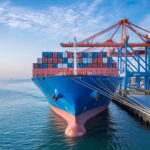


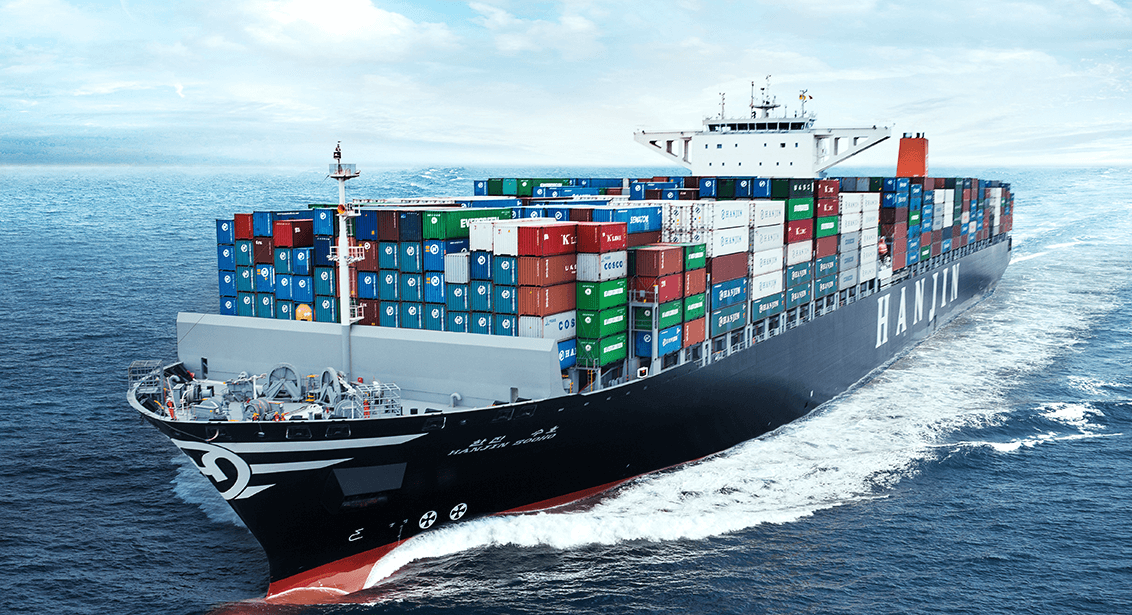
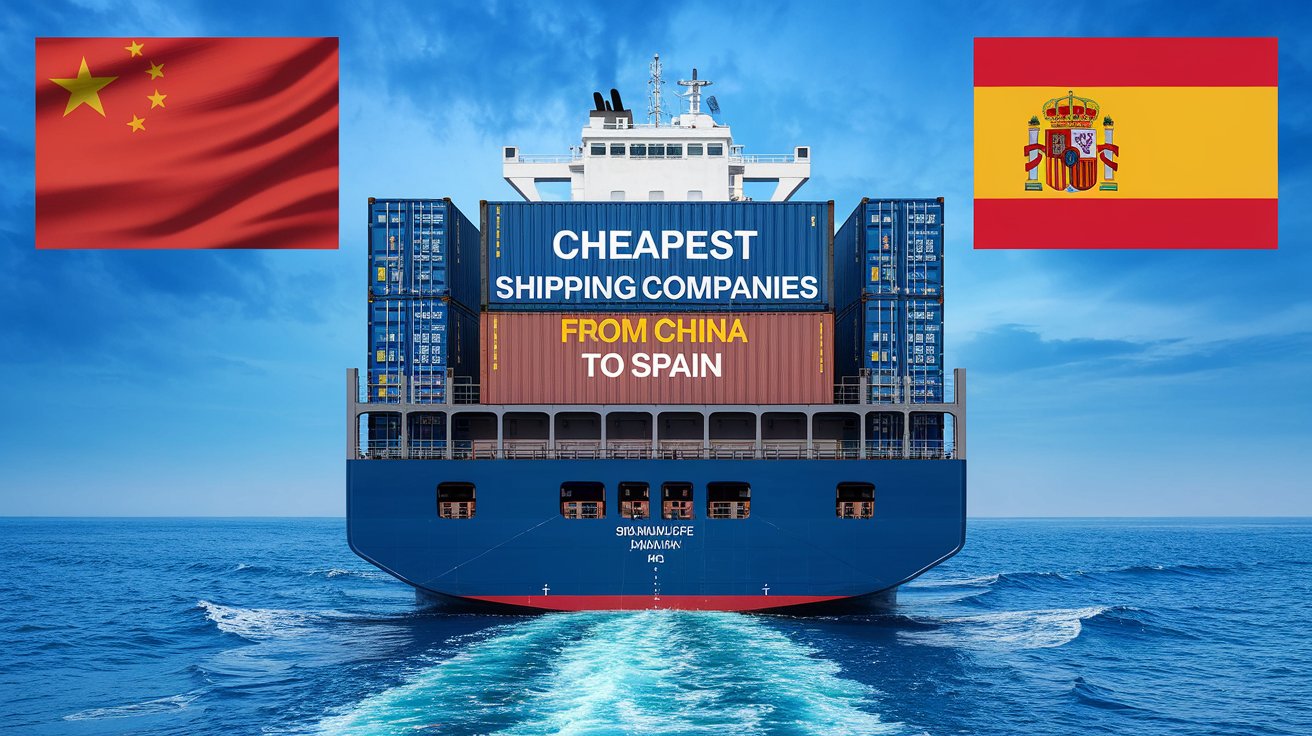
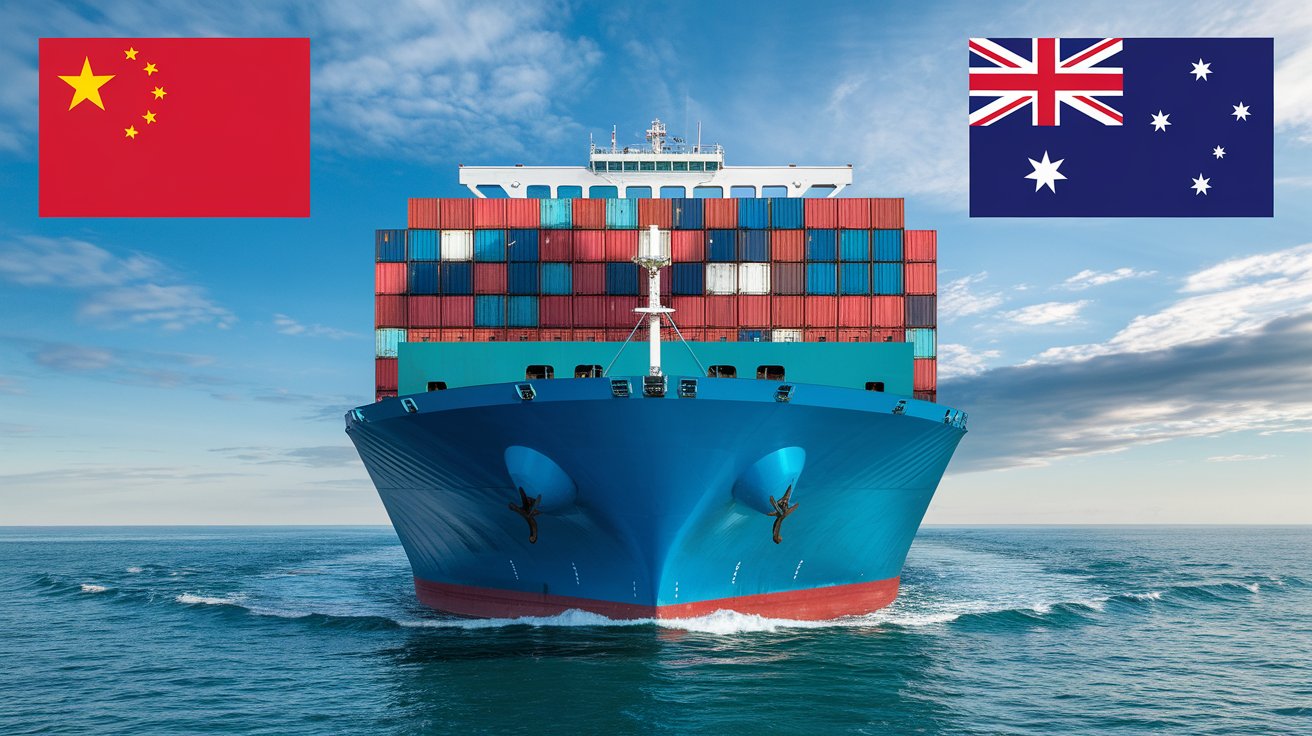





 Afrikaans
Afrikaans Shqip
Shqip አማርኛ
አማርኛ العربية
العربية Հայերեն
Հայերեն Azərbaycan dili
Azərbaycan dili Euskara
Euskara Беларуская мова
Беларуская мова বাংলা
বাংলা Bosanski
Bosanski Български
Български Català
Català Cebuano
Cebuano Chichewa
Chichewa 简体中文
简体中文 繁體中文
繁體中文 Corsu
Corsu Hrvatski
Hrvatski Čeština
Čeština Dansk
Dansk Nederlands
Nederlands English
English Esperanto
Esperanto Eesti
Eesti Filipino
Filipino Suomi
Suomi Français
Français Galego
Galego ქართული
ქართული Deutsch
Deutsch Ελληνικά
Ελληνικά Kreyol ayisyen
Kreyol ayisyen Harshen Hausa
Harshen Hausa Ōlelo Hawaiʻi
Ōlelo Hawaiʻi עִבְרִית
עִבְרִית हिन्दी
हिन्दी Hmong
Hmong Magyar
Magyar Íslenska
Íslenska Igbo
Igbo Bahasa Indonesia
Bahasa Indonesia Gaeilge
Gaeilge Italiano
Italiano 日本語
日本語 Basa Jawa
Basa Jawa ಕನ್ನಡ
ಕನ್ನಡ Қазақ тілі
Қазақ тілі ភាសាខ្មែរ
ភាសាខ្មែរ 한국어
한국어 كوردی
كوردی Кыргызча
Кыргызча ພາສາລາວ
ພາສາລາວ Latin
Latin Latviešu valoda
Latviešu valoda Lietuvių kalba
Lietuvių kalba Lëtzebuergesch
Lëtzebuergesch Македонски јазик
Македонски јазик Malagasy
Malagasy Bahasa Melayu
Bahasa Melayu മലയാളം
മലയാളം Maltese
Maltese Te Reo Māori
Te Reo Māori मराठी
मराठी Монгол
Монгол ဗမာစာ
ဗမာစာ नेपाली
नेपाली Norsk bokmål
Norsk bokmål پښتو
پښتو فارسی
فارسی Polski
Polski Português
Português ਪੰਜਾਬੀ
ਪੰਜਾਬੀ Română
Română Русский
Русский Samoan
Samoan Gàidhlig
Gàidhlig Српски језик
Српски језик Sesotho
Sesotho Shona
Shona سنڌي
سنڌي සිංහල
සිංහල Slovenčina
Slovenčina Slovenščina
Slovenščina Afsoomaali
Afsoomaali Español
Español Basa Sunda
Basa Sunda Kiswahili
Kiswahili Svenska
Svenska Тоҷикӣ
Тоҷикӣ தமிழ்
தமிழ் తెలుగు
తెలుగు ไทย
ไทย Türkçe
Türkçe Українська
Українська اردو
اردو O‘zbekcha
O‘zbekcha Tiếng Việt
Tiếng Việt Cymraeg
Cymraeg יידיש
יידיש Yorùbá
Yorùbá Zulu
Zulu